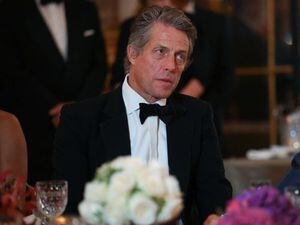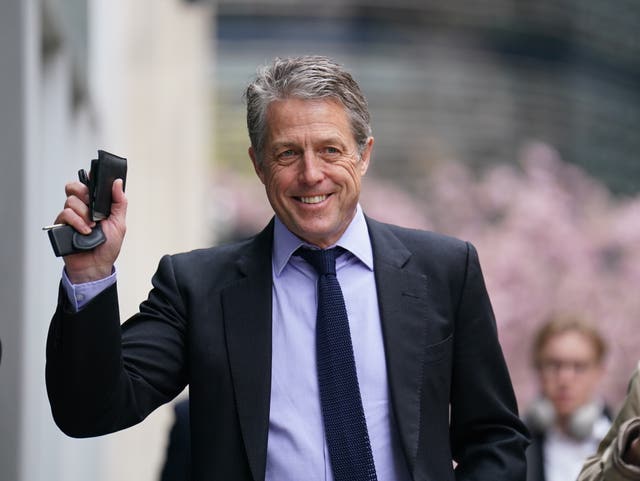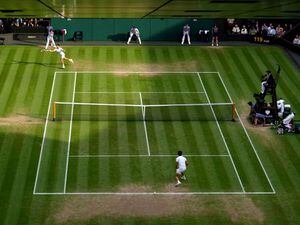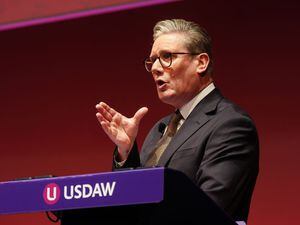Why was Hugh Grant ‘at risk of £10m in costs’ in case against The Sun publisher?
The actor said he could have faced a multimillion-pound legal bill if his claim against News Group Newspapers had gone to trial.

Hugh Grant has said he settled his High Court claim against The Sun newspaper’s publisher due to the risk of facing a £10 million legal bill if his case went to trial.
In a series of posts on X on Wednesday, the actor said he had been offered an “enormous sum of money” by News Group Newspapers (NGN) to settle his claim over allegations of unlawful information gathering.
The Notting Hill star said that, while he did not wish to settle his case, “the rules around civil litigation mean that if I proceed to trial and the court awards me damages that are even a penny less than the settlement offer, I would have to pay the legal costs of both sides”.
Tamsin Allen, head of media and information law at Bindmans, said usually “the loser pays the winner’s costs”, but that a regulation designed to encourage settlements before trial that can change this.
She said: “When the newspaper makes an offer to pay a certain amount of money in damages, the judge doesn’t see the offer.
“Costs almost always exceed damages, sometimes by hundreds of thousands of pounds.
“So, instead of receiving damages, the winner can find themselves paying out enormous sums to their beaten opponent.”
And Gideon Benaim, partner and head of the reputation protection team at Simkins LLP, said there are “very serious ramifications” if a person receiving an offer does not accept it and is then less successful at trial.
“Hugh Grant must have been left in little doubt by his lawyers that the offer was at such a level that he may not actually ‘beat’ it at trial,” he said.
“Therefore, even though he may have preferred to have his day in open court, the risks were simply too great and he accepted it.”

She added that even if the difference between the damages awarded and the offer is “minimal”, the winner of a case could still be made to pay the loser’s costs.
Ms Edwards added: “The consequences are significant and include a requirement to pay the costs of the offeror from a date shortly after the offer is made, at a much higher proportion than would otherwise be ordered and with interest on those costs at up to 10%.”
Prateek Swaika, partner at Boies Schiller Flexner, said Mr Grant may have settled his case “because of the extreme effects of the court’s costs liability rules rather than because of the merits of his claim”.
He added: “Plainly, obtaining proper access to justice and redress in a timely and cost-effective manner remains a live issue for claimants in libel litigation and not just for defendant publishers, contrary to what some may portray in the current climate.”
Mr Grant had brought legal action against News Group Newspapers (NGN) in relation to The Sun only, alleging he was targeted by journalists and private investigators, having previously settled a claim with the publisher in 2012 relating to the News Of The World.
He was among a number of individuals, including the Duke of Sussex, bringing claims against NGN.
NGN has previously denied any unlawful activity took place at The Sun.
The High Court in London heard on Wednesday that there are 42 outstanding claims against the publisher, with some due to be heard at a trial in January 2025.





